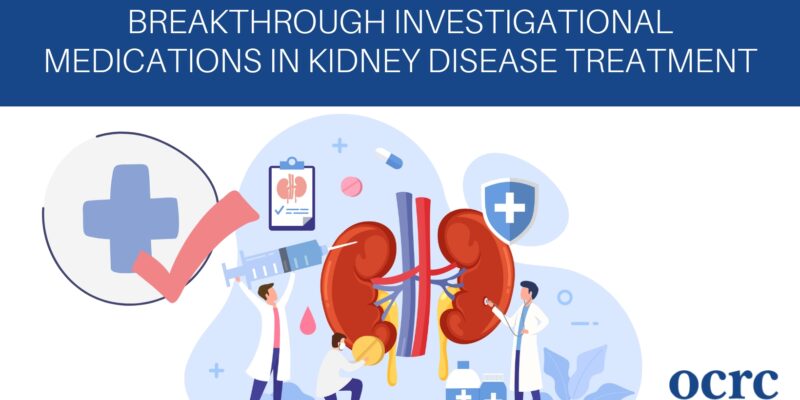
Some form of kidney disease affects approximately 35.5 million adults in the United States. The prevalence of kidney problems and the serious impact they can have on overall well-being and mortality have led scientists and pharmaceutical companies to increase their focus on investigational medications for kidney-related conditions.
Recently, there have been a number of breakthroughs regarding kidney disease treatment. Learn more about investigational medications, including some of the most promising new drugs.
Investigational medications are new drugs that are being studied to see if they can improve medical conditions safely and without causing significant side effects.
Before it enters regular use, a new drug must go through clinical trials. These trials have four phases in which increasing numbers of people are given the drug. During each phase, researchers assess how the drug affects the trial participants, looking for unexpected side effects and determining how well the drug works.
During clinical trials, scientists can see how much of the drug is needed to treat the condition, how long it can take to make a difference, and other critical data points. Using the results, scientists and pharmaceutical companies can then apply for FDA approval to make the drug available to the public.
In some instances, investigational medications may be used to help patients who are in critical condition and not enrolled in trials. That’s typically an option if the drug has been deemed safe but hasn’t gone through all of the stages of a clinical trial.
Here are the investigational medications that offer the most promise for the treatment of a variety of serious kidney conditions.
SGLT2 inhibitors appear to be highly promising drugs for the treatment of kidney disease. In clinical trials, they have been able to slow down the progression of chronic kidney disease (CKD) and can help to protect both cardiovascular and renal health.
A DAPA-CKD trial has shown that dapagliflozin can have these positive effects even in people with Type 2 diabetes, which has long been a goal.
BI 764198 is an investigational drug that is being studied for the potential it holds to help those living with a type of kidney disease called focal segmental glomerulosclerosis (FSGS). People with FSGS have damaged glomeruli, which are the tiny filtering units in the kidney. The drug works by reducing protein in urine.
Finerenone is a nonsteroidal, selective mineralocorticoid receptor antagonist (MRA) that targets and blocks receptors that cause inflammation and scarring in the kidneys and heart.
One study, dubbed FIDELIO-DKD, showed that finerenone was able to slow the progression of diabetic kidney disease by 18% over 2.6 years compared to current treatment methods.
Created by Novartis, atrasentan is an oral endothelin A receptor antagonist (ERA) that offers help for patients with IgA nephropathy, also called Berger disease. Atrasentan is another drug focused on reducing the amount of protein in urine in order to slow down the progression of kidney disease.
AP303 has recently received Orphan Drug designation from the FDA for the treatment of autosomal dominant polycystic kidney disease (ADPKD). Although ADPKD is a relatively rare condition, it is a common cause of end-stage kidney disease that requires renal replacement therapy. AP303 seems to improve kidney function in those who suffer from ADPKD.
Clinical trials are essential for finding solutions to the most pressing medical issues. Kidney disease not only places a burden on the healthcare system but also causes hardship for patients of all ages.
Investigational medications and treatments are necessary to achieve results, and we’re proud to make this possible.
Orlando Clinical Research Center is a research site in Central Florida where Phase I-IV clinical trials are conducted. With state-of-the-art facilities that accommodate large numbers of participants, we partner with pharmaceutical and biotech companies to drive medicine forward.
We also serve members of the public who are interested in participating in clinical trials, including those living with both kidney and liver disease. At the moment, one trial is focused on understanding how the kidney absorbs, breaks down and removes an investigational medication.
To learn more about enrolling in a current study, contact our team.
